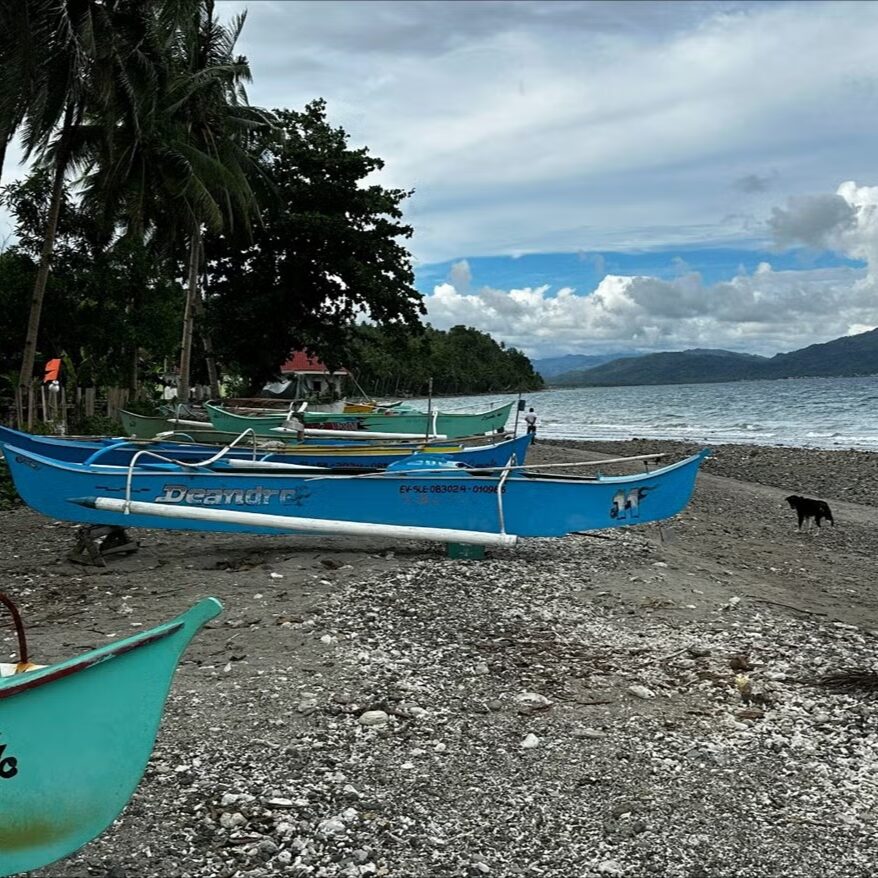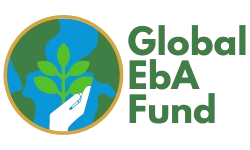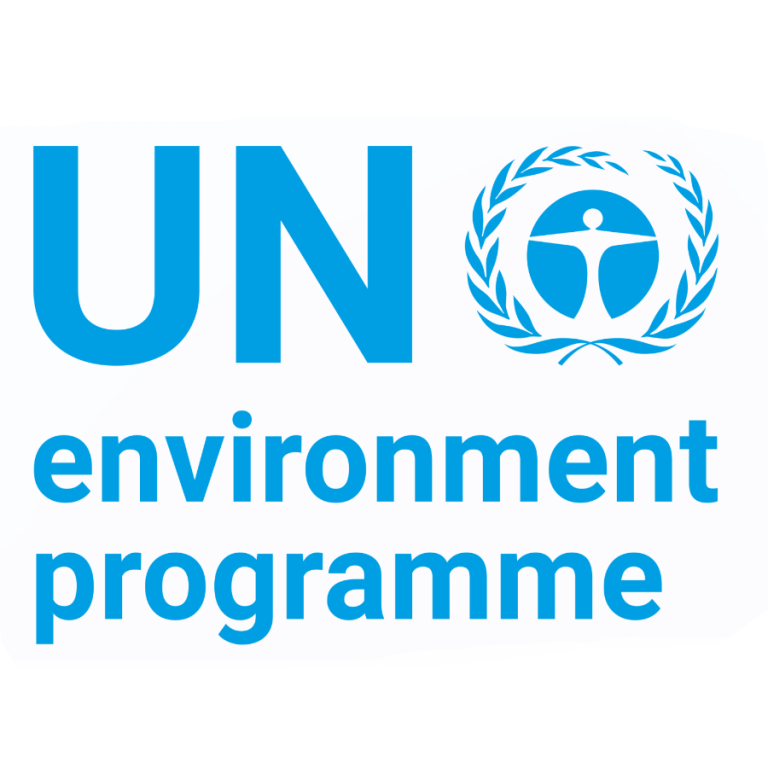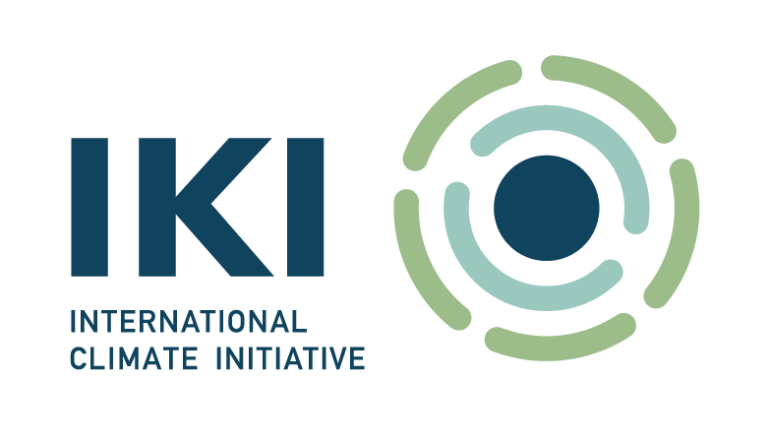Promouvoir les approches écosystémiques pour renforcer la résilience climatique, les moyens de subsistance et la sécurité alimentaire dans le Triangle de corail aux Philippines
Informations sur le projet
En partenariat avec le Fonds mondial EbA, le Fonds de défense de l'environnement Nous avons collaboré avec des organisations et des responsables locaux aux Philippines pour lutter contre les effets du changement climatique et contribuer à renforcer la résilience de la baie de Cabalian, une région de pêche philippine extrêmement vulnérable au changement climatique. Le changement climatique, le développement côtier non durable et la surpêche ont endommagé les écosystèmes côtiers et hauturiers, limitant les bénéfices que ces écosystèmes peuvent apporter aux communautés locales, comme la protection contre les ondes de tempête et l'habitat des poissons. Ces facteurs ont également accentué l'insécurité alimentaire et financière des pêcheurs et des pisciculteurs locaux. Le Fonds de défense de l'environnement Le projet de résilience a contribué à restaurer les écosystèmes endommagés, à créer des moyens de subsistance durables, à accroître la sécurité alimentaire et à atténuer les impacts du changement climatique..
Le projet a contribué à renforcer la résilience de la baie de Cabalian grâce à deux initiatives :
Culture d'algues en pleine mer : EDF et ses partenaires ont exploité les avantages de l'aquaculture pour restaurer des écosystèmes endommagés, accroître la sécurité alimentaire et créer des moyens de subsistance durables, tout en captant la pollution atmosphérique et en atténuant les impacts du changement climatique sur l'océan. Après avoir exploité avec succès une ferme d'algues régénératrice en haute mer pendant plus d'un an, l'équipe du projet a lancé une ferme d'algues distincte pour offrir des moyens de subsistance aux membres de la communauté. Notre équipe et nos partenaires ont formé trente membres de l'association Juanas Lipanto, une organisation locale dirigée par des femmes, à la culture des algues et aux pratiques commerciales. Aujourd'hui, ces membres de la communauté gèrent entièrement les opérations quotidiennes de la ferme. Ils ont perçu leurs premiers revenus grâce à la vente d'algues et ont conclu un accord pour fournir des plants au Bureau des pêches et des ressources aquatiques afin d'étendre les avantages de la culture des algues à d'autres parties de la région.
Gestion des ressources côtières : Outre la promotion des avantages économiques et environnementaux de l'aquaculture régénératrice d'algues, EDF a accompagné les partenaires locaux dans l'élaboration d'un plan de gestion des ressources côtières afin de soutenir la prospérité des océans et de la vie marine dans un contexte de changement climatique. Ce plan fournira une feuille de route pour une gestion durable des côtes, tandis que les partenaires locaux se prépareront à le mettre en œuvre au cours des prochaines années.
Le plan a été élaboré selon un processus inclusif et participatif. L'équipe du projet a constitué un groupe de travail composé d'acteurs clés afin de déterminer les moyens de restaurer et de gérer durablement les ressources marines, vitales pour la région sur les plans culturel et économique. Parmi les membres figurent des représentants des collectivités locales de Saint-Bernard, des agences gouvernementales provinciales, de huit barangays locaux, du ministère de l'Environnement et des Ressources naturelles, du Bureau des pêches et des ressources aquatiques, de la Police nationale et des garde-côtes philippins, de l'Université d'État de Southern Leyte, d'organisations communautaires, etc. Le projet a fourni aux membres du groupe de travail des évaluations et des cartes détaillées de l'habitat pour alimenter le plan de gestion, qui a été finalisé début 2025.
Réalisations du projet
- A établi une communauté-ferme gérée pour la production d'algues. Grâce à la formation, au renforcement des capacités et à des partenariats stratégiques, EDF a développé une ferme aquacole d'algues gérée par la communauté. En collaboration avec l'Association Juanas Lipanto, une organisation locale dirigée par des femmes, notre projet a développé la ferme de A à Z, en fournissant un soutien financier et technique, et en facilitant une formation approfondie et le renforcement des capacités sur divers sujets nécessaires à la réussite à long terme de la ferme (sécurité aquatique, production écologique d'algues, développement d'entreprises sociales, gestion financière, etc.). La propriété et la gestion de la ferme ont été transférées à l'association, et EDF et ses partenaires leur ont fourni un plan d'affaires quinquennal pour soutenir la réussite à long terme de la ferme.
- Renforcement de la gouvernance locale et de l’engagement politique en faveur de la gestion des ressources côtières. EDF a facilité la création d'un groupe de travail technique (GTT) par arrêté municipal, réunissant des représentants de l'unité de gouvernement local (UGL), du ministère de l'Environnement et des Ressources naturelles (DENR), du BFAR, du gouvernement provincial, d'organismes communautaires et d'établissements universitaires. Le GTT s'est réuni régulièrement pour élaborer le Plan de gestion intégrée des ressources côtières (ICRMP), affiner les stratégies de gestion et promouvoir l'adoption de politiques. De plus, le projet a élaboré un modèle pour les futurs ICRMP et une note d'orientation préconisant son utilisation dans toute la région afin de mieux intégrer l'EbA et le changement climatique dans la planification de la gestion des ressources.
- Conservation avancée de la biodiversité grâce à des évaluations et une cartographie des écosystèmes. EDF a réalisé des évaluations complètes des habitats côtiers dans huit barangays, fournissant des données essentielles sur les mangroves, les récifs coralliens et les écosystèmes d'herbiers marins. La cartographie des mangroves par drone a permis d'identifier des zones de conservation clés, et EDF a impliqué les communautés locales dans des évaluations participatives afin de valider les résultats et d'éclairer les stratégies de gestion durable intégrées au plan intégré de gestion des ressources en eau.
- Élaboration du Plan de gestion intégrée des ressources côtières (PGIRC) pour Saint-Bernard. EDF a collaboré avec les autorités locales, les établissements universitaires et les acteurs de la communauté pour rédiger et finaliser l'ICRMP, en intégrant les données des évaluations menées dans le cadre du projet. Ce plan fournit une feuille de route pour une gestion durable des zones côtières, notamment en renforçant l'application des lois environnementales existantes et en guidant l'élaboration de nouvelles politiques.
Statut du projet
Terminé le 28/02/2025
Indicateurs clés
Mis en œuvre par :
Fonds de défense de l'environnement
Un modèle pour la résilience : normaliser les ICRMP avec une adaptation basée sur les écosystèmes
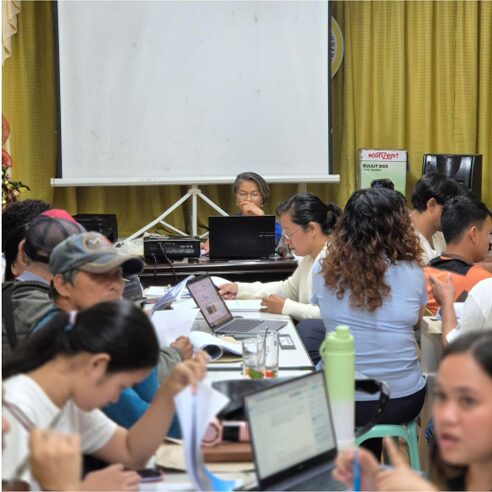
Fonds de défense de l'environnement
Série vidéo : Adaptation écosystémique chez le Saint-Bernard
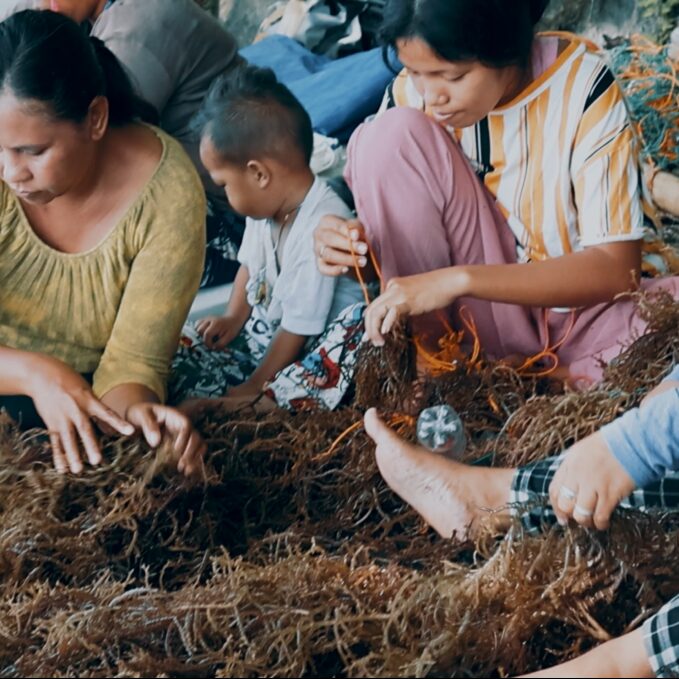
Fonds de défense de l'environnement
La culture des algues : un nouvel espoir vert pour l'économie bleue des Philippines
